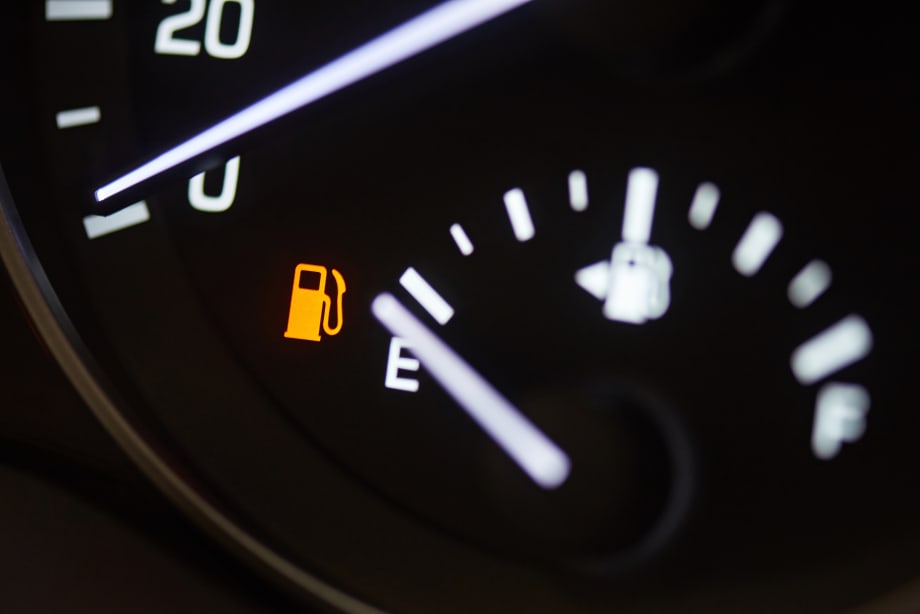What helps to reduce fuel consumption?
Drivers looking to reduce their fuel costs can take extra steps to be more efficient on the road. These are some of the best ways to reduce your fuel consumption and save money.

1. Replace your old spark plugs
If you want your vehicle to be more fuel efficient, it may be worth replacing you spark plugs. Old or damaged spark plugs can reduce your fuel efficiency by up to 30%. If they misfire, faulty spark plugs can cause high fuel consumption. If this is the case for your vehicle, it’s recommended you have your car seen by a mechanic, or check your spark plugs yourself.
2. Clean your air filters
This is an easy step for every driver to take to help reduce their fuel consumption. Air filters can trap dirt and dust. The dirtier your air filters are, the more work your engine has to put in, which uses up more fuel.
3. Don’t idle
If you are stationary in your vehicle with the engine running, you are still using fuel to keep power the engine. It’s fine to stay idle if it’s only for a few moments, but if you want to really reduce your fuel consumption, you should turn off your engine if you’re going to be stationary for a prolonged period of time.
4. Utilise vehicle tracking
For fleet managers, vehicle tracking can help monitor and manage your fleet’s fuel consumption.
A telematics system will give you insight into how often your drivers are filling up and if they have any driving behaviours that could see fuel consumed at a faster rate, costing your business money.
5. Know when to use cruise control
Cruise control settings work best on totally flat roads, such as motorways. If you put your car into top gear and cruise along the motorway, you’ll reduce your fuel consumption. But if you use cruise control in a city or on country lanes, you’ll actually end up using more fuel than you normally would.
6. Check your tyre pressure

Tyre pressure affects your fuel consumption. If your tyres are deflated, this will increase drag. Most of the time, you won’t be able to tell just by looking, so it’s best to get them checked.
7. Think about your route
Your everyday driving route might be the fastest, but it could be using more fuel than you think. If you hit a lot of traffic lights or need to drive up hills, a different route might reduce your fuel consumption even if it makes the journey time longer. Try out a different route for a week and see how your fuel usage changes.
8. Keep windows closed on the motorway
Opening the windows when you’re at high speeds can increase your fuel usage by up to 20%. If you’re driving over 45mph, we recommend keeping your windows closed. If you’re under 45mph, opening the windows is better than turning on your aircon.
9. Check out different petrol stations
Some stations sell fuel at lower prices than others. According to the PRA, over 40% of petrol and diesel sold in the UK comes from supermarket stations. Supermarket fuel is usually the cheapest around, but there’s still a big number of drivers who prefer branded fuel.
Fuel cards can offer your business more savings. Sole traders can get a fuel card too. Supermarkets like Tesco and Morrisons accept fuel cards at their stations. Prefer branded fuel? Major brands like Shell, Esso, BP, Texaco and more offer fuel cards. Which fuel card is right for your business will depend on your fuel needs. Wherever you fill up, shopping around can get you a better deal.
10. Go for your check-ups
Just like not going to the dentist has consequences, ignoring your mechanic has consequences for your car. If you notice that your vehicle is using fuel at an unusually high rate, make sure you visit a mechanic for advice.
11. Use the right gear
Being in the wrong gear means your vehicle has to work harder to keep moving. You want to make sure you’re in the right gear to get the highest fuel efficiency possible.
12. Drive carefully
Good driving habits can help improve your vehicle’s fuel efficiency. Avoid slamming on the accelerator pedal or braking late.
Keeping a steady speed is way more efficient than keeping your foot on the accelerator. Acceleration takes more fuel because your engine has to put in more work.
Rather than pushing down the on the accelerator, drivers can use gear blocking to reduce fuel consumption. You can only do this if you have a manual vehicle. One common trick is the shift down from fifth gear to third gear to accelerate and overtake another vehicle. This trick reduces your fuel consumption. While gear blocking is useful in this situation, most of the time you’ll want to simply go through the gears as usual.
Driving at high speeds also increases your fuel consumption so unless you’re on a motorway, you’ll want to avoid higher speeds.